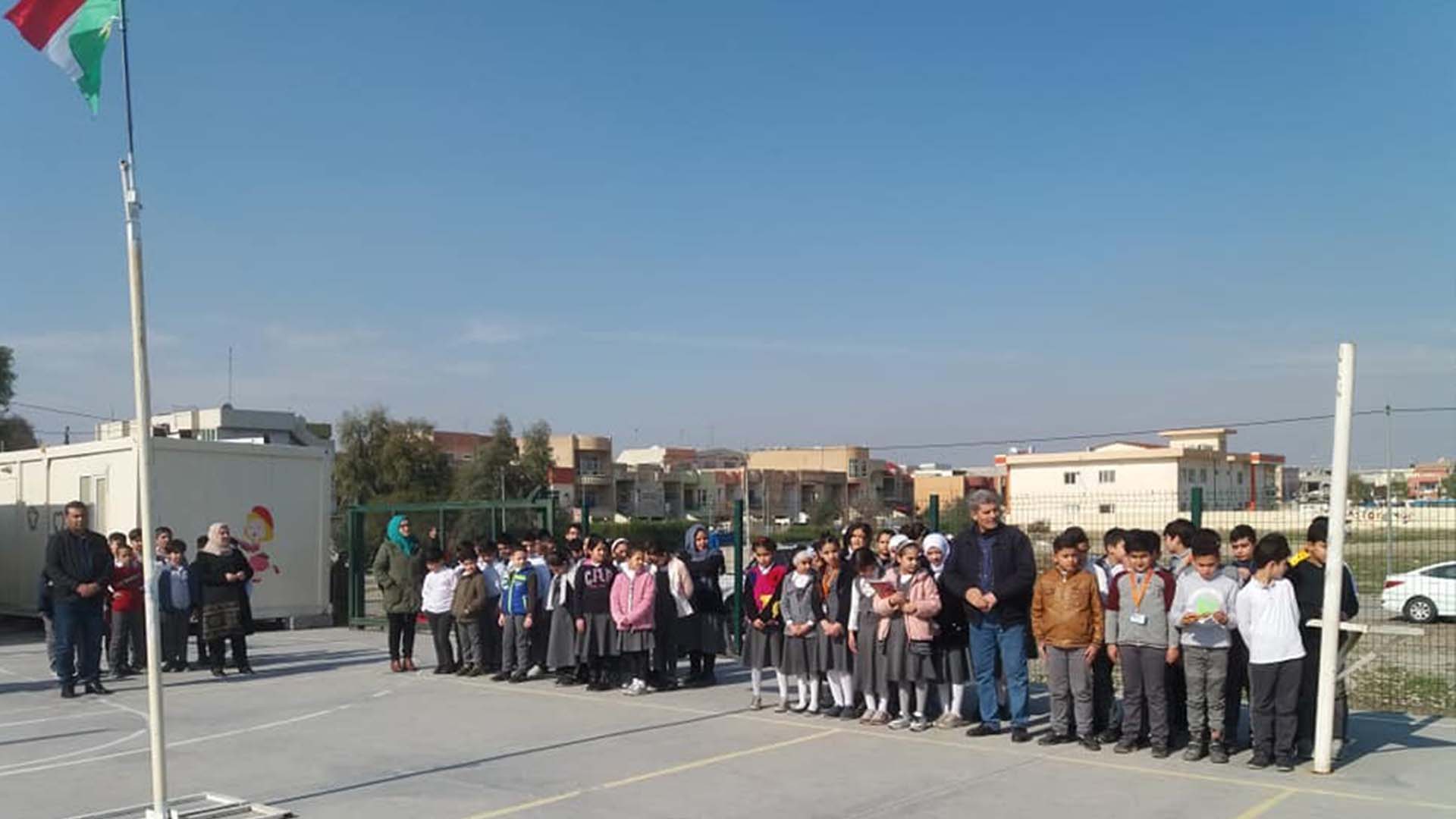Syrian students, teachers face obstacles in Iraqi Kurdistan
ERBIL, KRG, Iraq (North Press) – Masoud Dawoud, member of the teaching staff of Syrian refugees in Erbil, the capital of Kurdistan Regional Government (KRG), complains about the lack of education for a number of Syrian students in the KRG during the past three years, especially those from Afrin and Sere Kaniye, due to the absence of their identity documents and the low salaries of teachers.
In 2018, the Turkish forces and Turkish-backed armed groups took over Syria’s Afrin. At the end of 2019, they occupied Sere Kaniye and Tel Abyad, northeast Syria, which forced the residents of those regions to flee.
The KRG has at least 40,000 refugee students from Syria, most of them from the northeast, according to press reports.
A refugee is asked to present documents of the studies that they have completed in Syria, certified by the Ministry of Foreign Affairs and the Iraqi Embassy in Damascus, in addition to the study sequence certified from both parties.
Dawoud described the conditions that the concerned authorities in the KRG set for the refugee students as “insurmountable.”
58 schools in Dohuk, Erbil, and Sulaymaniyah governorates were marked for Syrian refugee students.
Intertwined files
Instability of Syrian families, who are torn between returning to Syria, staying in the KRG, or travelling to Europe, worsens the students’ conditions and disturbs their studies, as they are afraid of changing curriculums according to their place of residence.
One of the problems that the Syrian students who stay in cities face is the difficulty of entering high schools and universities.
The father of a student who preferred not to be named said that after his son finished preparatory school, he was forced to go to a remote high school away from his place of residence in Erbil after “continuous attempts and mediation” to be accepted.
Currently, the student has to study the official Iraqi curriculum, which disrupts the study environment of the student in comparison to the previous stage.
Some of the wealthier refugees send their children to private schools due to their higher-quality education.
Berivan Abdo (a pseudonym), a Syrian refugee residing in Erbil, said she sent her son to a private school for the sake of his future, though this constitutes an additional financial burden for her.
Moreover, students suffered during the last two years due to accumulation of the curriculum and the rushing of lost lessons through a virtual system due to the lockdown that the government imposed against coronavirus.
Refugee teachers
Most of the teaching staff appointed by the education directorates to teach these students are Syrian refugees. Their numbers exceed 1,200, except Kurdish language teachers, as they are from the KRG.
Dawoud pointed out to the absence of an organized mechanism for the salary issue, as the teaching staff “still does not know how the education directorate deals with them in this issue, whether they are full-time teachers or substitute teachers.
He called for a solution to the problem of teachers in refugee schools by having them work on annual contracts, or by dealing with them as teachers via the education ministry or international organizations and disbursing their financial dues within an organized mechanism.
The problem of Syrian teachers is not limited to receiving their salaries during the school year and going without pay during the summer months; their salaries are often delayed for months.
Initially, the KRG used to pay the teachers a monthly salary of around $400, and the United Nations gave them nearly $200 as volunteers in the field of humanitarian work.
However, due to the economic crisis that the region suffered after the attack of the Islamic State (ISIS) and the global drop in oil prices, teachers’ earnings were reduced to less than $200 per month.
In addition, financial grants from the United Nations were cut off in 2018, prompting a number of teachers to leave teaching and resort to another profession.
Because of these factors, the educational sector has lost a lot of qualified teachers, and the percentage of teachers for subjects other than their specializations increased in turn, which will negatively affect the educational process.
Despite the difficult financial conditions of the refugees, the low salaries and the severely delayed payment, some teachers continue their duties in order to ensure that children are not deprived of an education, according to teachers.

